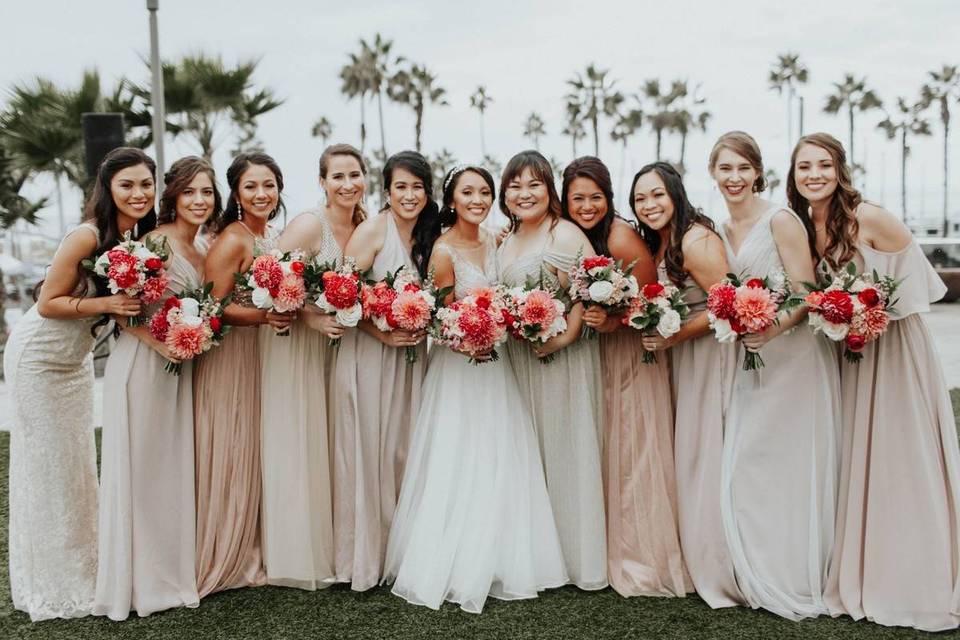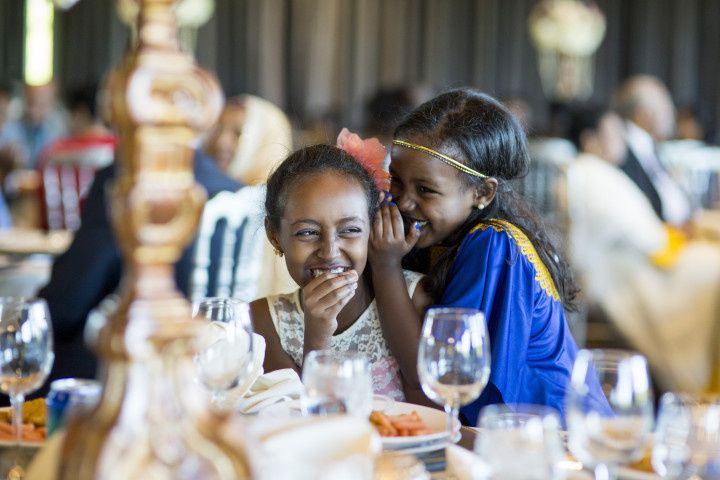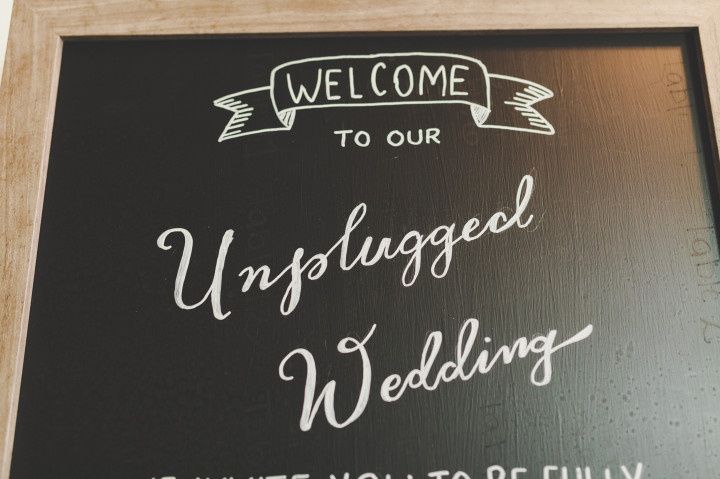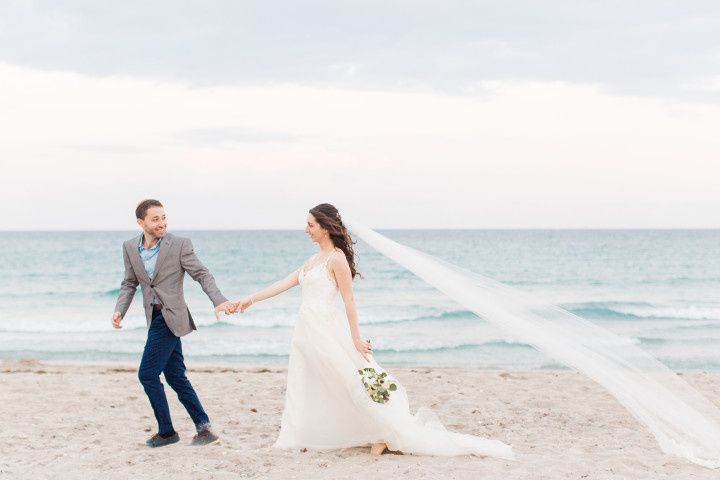10 Wedding Planning Talks You NEED to Have with Your Parents
Make sure that you run these items by your parents before moving forward with your big day.
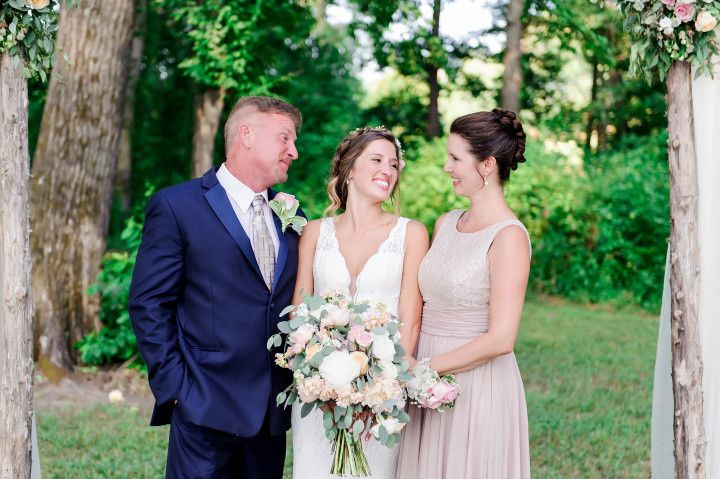

Photo: Tracy Shoopman Photography
A major part of your wedding day is celebrating your relationship with your partner. But don’t forget that it’s an important day for your parents, as well. After all, they’re probably been thinking about and waiting for this milestone since the day you were born. While you may not always agree with your parents during the planning process, you probably don’t want to ruin your relationship either. And while planning a wedding is a great way to show your independence as a responsible adult, you shouldn’t go totally rogue and forget about your loved ones in the process.
There are certain wedding-related decisions that your parents should be involved in, both major and minor. Make sure that you run these items by your parents before moving forward with your big day.
Setting your budget
One of the most important first steps of wedding planning is figuring out how much you can afford to spend. If you would like your parents to help pay for your wedding, be sure to discuss this with them politely but directly—not only do you need to know if they’ll be able to contribute, but exactly how much they are willing to spend.If you and your partner want to pay for your wedding yourselves, props to you. It’s a major sign of financial independence that you’re able to foot the (rather large) bill—and it means you’ll have full control over the decision-making. However, your parents may actually want to assist with paying for your wedding—perhaps they’ve been putting aside money for this milestone. Make sure that everyone is aware of how the wedding is being paid for before moving forward.
Finalizing your guest list
It’s a good idea to discuss your guest list with your parents before it’s set in stone. If your parents are contributing financially to your wedding, they should get a say in who’s invited. Yes, there may be some disagreements (seriously, your old co-worker who you haven’t seen in 10 years, Mom?), but it’s best to hash those out now rather than keeping the guest list a secret. And yes, if you’re paying for the wedding, you can technically invite (and nix!) whoever you want—but we still recommend giving your parents a set number of people they can invite to make them happy. It’s a big day for them, and they should be surrounded by loved ones, too!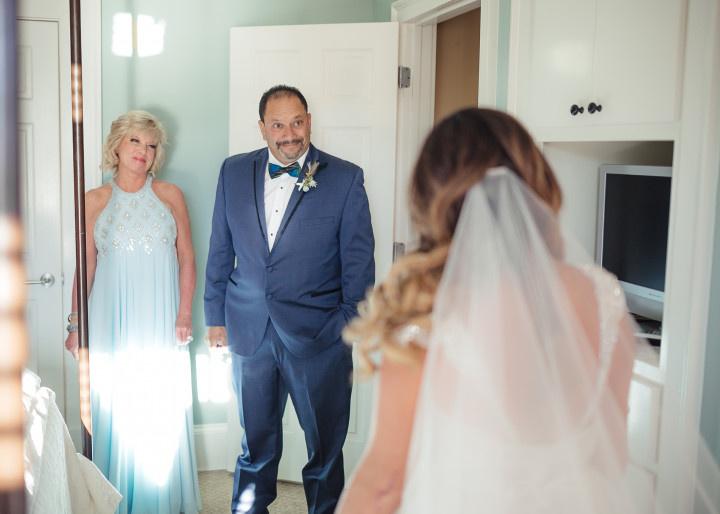
Photo: Brandy Angel Photography
Setting a date and booking a venue
Before booking your venue and setting your date, be sure to run both by your parents. There may be conflicts you weren’t aware of (another big family event, a major work commitment) that your parents may bring to your attention. And in terms of your wedding location, if you’re hosting a hometown wedding that requires little travel, that’s likely easy for your parents. But if you’d like to host a destination wedding, make sure your parents are comfortable with the travel involved. While they don’t have to be thrilled with the idea of you getting married far from home (though hopefully they will be!), you’ll still want to make sure they will be able to make the trip to the event.Sending your invitation
Burn this into your brain: If your parents are contributing financially to your wedding, they should be listed on your wedding invitations by name. There are a lot of different ways to word your wedding invitations, but from an etiquette perspective, those who are paying should be mentioned. We recommend showing your parents a proof of your wedding invitations before you finalize them to make sure that they’re okay with the wording or express any concerns.Displaying photos from their wedding day
We’ve all seen those cute displays at weddings where couples show off family wedding photos. If this is something you’d like to do at your own wedding, be sure to ask your parents before going through their wedding album. Sure, you parents may be delighted that you want to show your family history in this way, but they may also prefer to keep their photos private.Walking down the aisle
During a traditional wedding processional, the bride is escorted down the aisle by her father (in Jewish weddings, both parents walk the bride down the aisle). These days, however, couples are changing up the traditional processional and walking down the aisle in a variety of configurations. If you’d like to change things up, perhaps including a stepparent or having both parents walk with you, be sure to discuss with your parents first.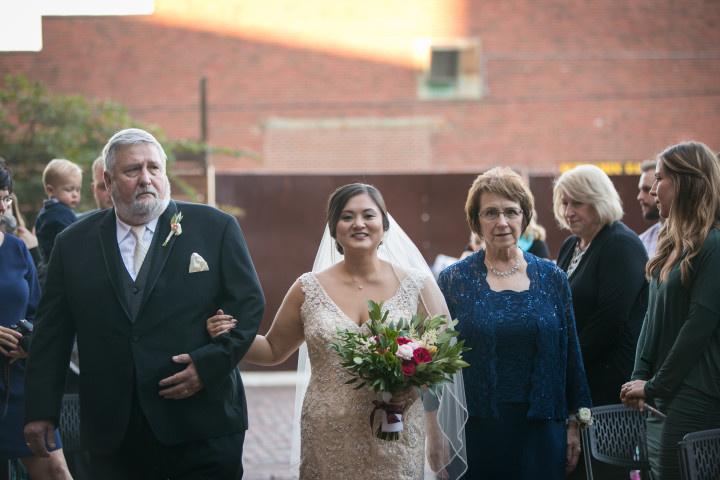
Photo: Pond Photography

